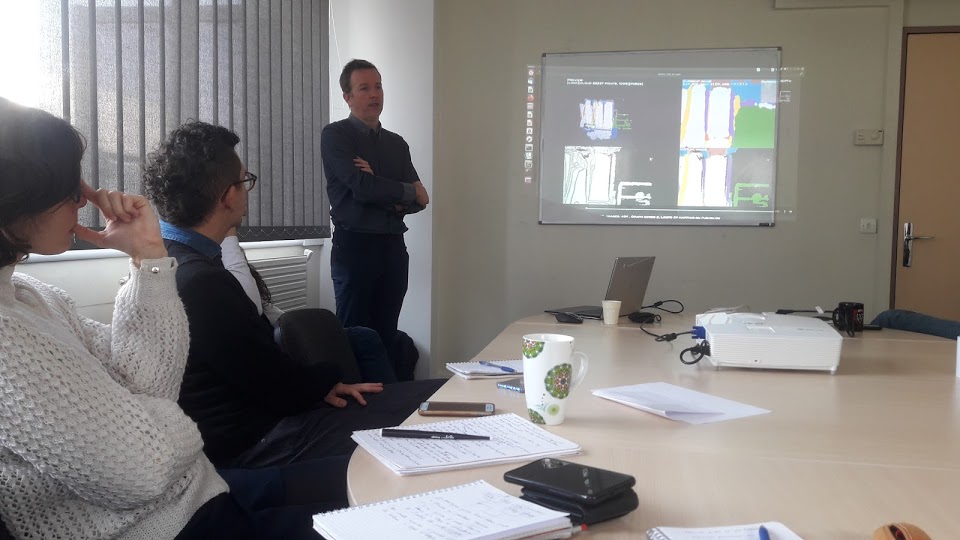
Dr. Andrew Comport, CNRS researcher at the I3S laboratory of the University of the Côte d’Azur, will give a seminar entitled “Localisation and dense mapping for autonomous navigation” on Monday 27 January at 10:30 am at Ifremer (La Seyne Sur Mer, Brégaillon area).
Abstract
In this talk, he will present advanced computer vision approaches for real-time dense location and mapping that have been developed in the context of the European H2020 COMANOID project to control and navigate humanoid robots using dense perception. First, it will show how dense localization and mapping models can be computed in real time to allow precise and robust interaction with 3D scene surfaces. He will present recent advances that integrate temporally, in addition to 3D geometry, the color information contained in images. This will involve defining an inverse super-resolution model for many low-resolution images acquired from different camera poses. In contrast to conventional super-resolution techniques, this is achieved here by taking into account the complete 6D motion transformations as well as the surface structure of the scene.
In a second part, he will present a real-time model for the acquisition of 3D light fields in “High Dynamic Range” (HDR) from several moving images with different exposures (sensor integration periods). In particular, an RGB-D camera will be used as a dynamic light field sensor. Another augmented reality application will be presented that demonstrates the wider use of real-time 3D HDR mapping, virtual light probe synthesis and light source detection to make objects reflective with shadows and transparent with the real-time video stream.
Bio:
Andrew Comport is a CNRS researcher assigned to the I3S laboratory at the University Cote d’Azur. His research focuses on the fields of computer vision, robotics, machine learning and visual servoing. In 2015, he co-founded the start-up PIXMAP, specialized in real-time localization and mapping based on several patents and software. He defended his thesis at INRIA Rennes in 2005 and did a postdoc at INRIA Sophia-Antipolis until 2007. Prior to that, he obtained a double degree in Engineering and Computer Science at Monash University in Australia. He is author of more than 50 international publications among which he won the best paper award at the IEEE/RSJ IROS international conference in 2013. He is currently Associate Editor of the IEEE International Conference on Robotics and Automation (ICRA) and Robotics and Automation Letters (RAL).
Translated with www.DeepL.com/Translator (free version)
